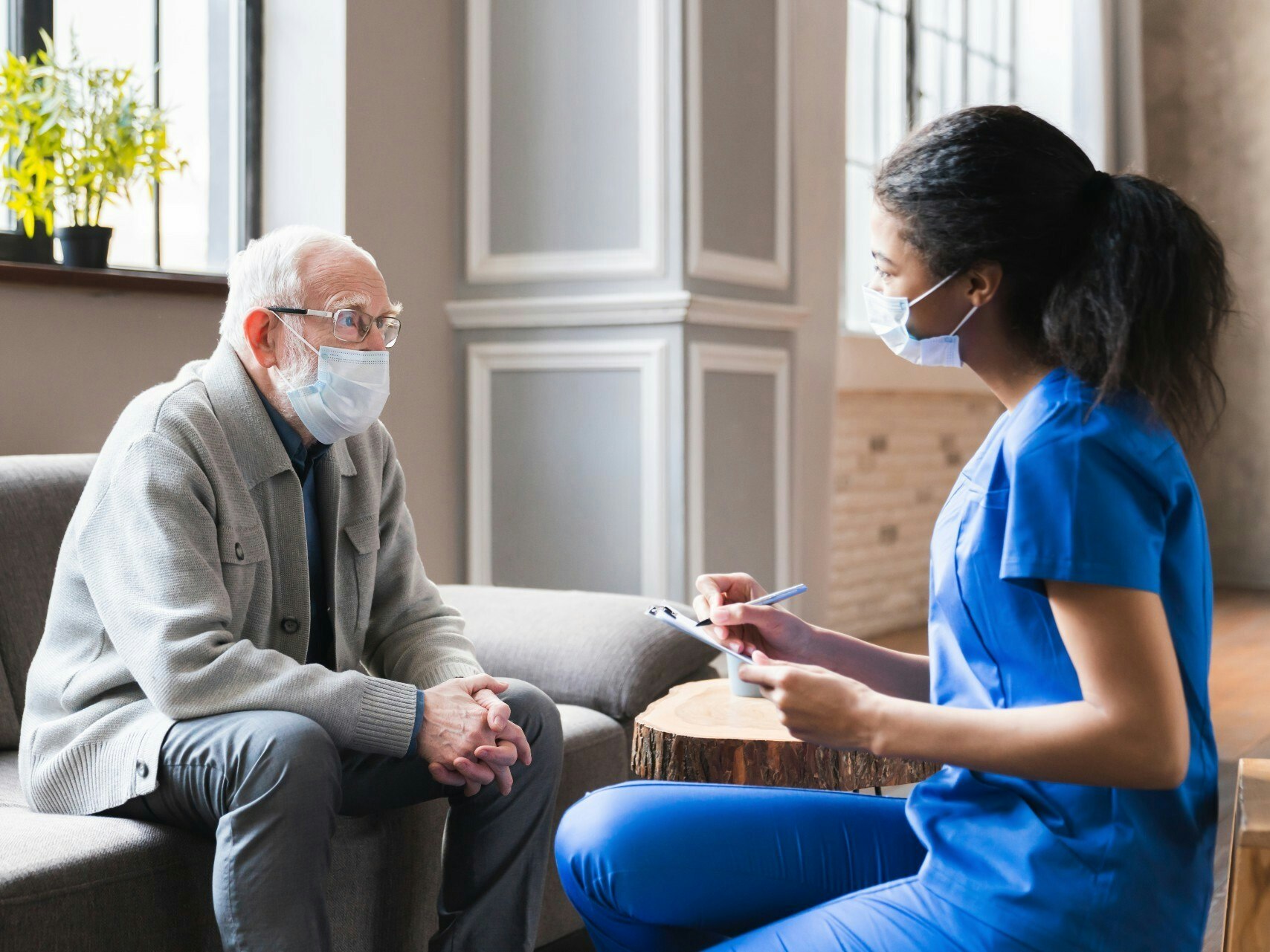Supports available to protect you from COVID-19
Last updated

While Australia moves towards a “COVID-19 normal” strategy – living with the disease, many people with disability are still concerned about the virus and are actively protecting them selves in whatever way they can.
Key points
-
It’s important you have all the information you need before you decide whether to get the COVID-19 vaccine or not
-
There are people who can support you to get vaccinated and some vaccination hubs are designed for people with disability
-
You can also choose to have support workers who are vaccinated
Some people with disability avoid going out into public when they don’t need to, attend schooling or undertake work from home, or have issues accessing services they need.
Getting a COVID-19 vaccine can reduce the severity of symptoms if you become infected, and also slow the spread of the virus in your community.
There are supports available to help people with disability to access vaccinations and there are also resources to support individuals to make sure they give informed consent to the vaccine.
What does informed consent mean?
You can choose whether to have the vaccine or not, but before you make the decision you need to understand what is involved and what it means for you.
Your GP is a good person to ask about the vaccine, but there is also information in easy read and Auslan resources on the Australian Department of Health website.
Some of the things you might need to know include:
-
What the types of vaccine are and who can get them
-
The benefits and risks of having the vaccine
-
What side effects you might have
-
How the vaccine works
-
The requirement to have two doses and how much time there should be between doses
-
Whether your medication will have any impact on you getting the vaccine
When you understand all the information you can give your informed consent to receive the vaccine or make the decision not to have it.
Support to get vaccinated
If you live in a disability or aged care residential setting and are an NDIS participant, your provider can organise for someone to visit to give you the vaccine.
For people not living in that situation who would like to get the vaccine, you can receive them from community pharmacies, GP clinics, or through State and Territory clinics.
Some States and service providers have also set up accessible clinics to assist people with disability.
The clinics may have extra space for movement, easy read resources, longer appointment times or less light and noise for people with sensory difficulties.
Accessible clinics can be found in:
-
Tasmania (in Hobart and Launceston)
The Victorian Government also has information about how a Disability Liaison Officer may be able to help you book a vaccination and access advice.
Vaccine appointments can also be booked through the Federal Government’s eligibility checker or through your State or Territory Government’s COVID-19 website.
You can also utilise the ‘Hey Eva’ – Easy Vaccine Access callback service to get assistance in booking a vaccine. Just SMS “Hey EVA” to 0481 611 382 and a trained agent will contact you from the National Coronavirus Helpline to book you a COVID-19 appointment.
To any vaccine appointment you can bring someone to support you – they could be a family member, friend or support worker.
The Government also funds support coordination to help people with disability to attend vaccine appointments.
This could involve arranging for transport to get you to your vaccine appointment or getting a support worker to go to the appointment with you and monitor you for any side effects after vaccination.
Other ways to protect yourself from COVID-19
You can ask for support workers who are vaccinated to further protect your health.
If your regular support workers either can’t be vaccinated or don’t want to be, you can talk to your service provider about what to do.
Service providers and support workers can’t refuse to support you because you either have had the vaccine or because you don’t want the vaccine, and if this does happen you can report it to the NDIS Commission.
If you are self-isolating at home to protect yourself from exposure to the virus you may be able to have appointments with health professionals, including GPs, over the phone or via video call to make sure you continue with your health care.
Remember to keep up good hygiene practices like washing your hands often and using hand sanitiser, practising physical distancing as much as possible if you do leave home, and get tested for COVID-19 if you have cold or flu symptoms.
Looking after your mental health is also important and it can help to stay connected with family and friends as best as you can online, over the phone, by video call or by meeting in an outdoors environment where you can be distanced from other people.
Have you found this move to COVID-19 normal living difficult? Tell us in the comments below.
Related content:
What you need to know about the COVID-19 vaccine
Mythbusting information about the COVID-19 vaccine
Further support for NDIS participants during COVID-19